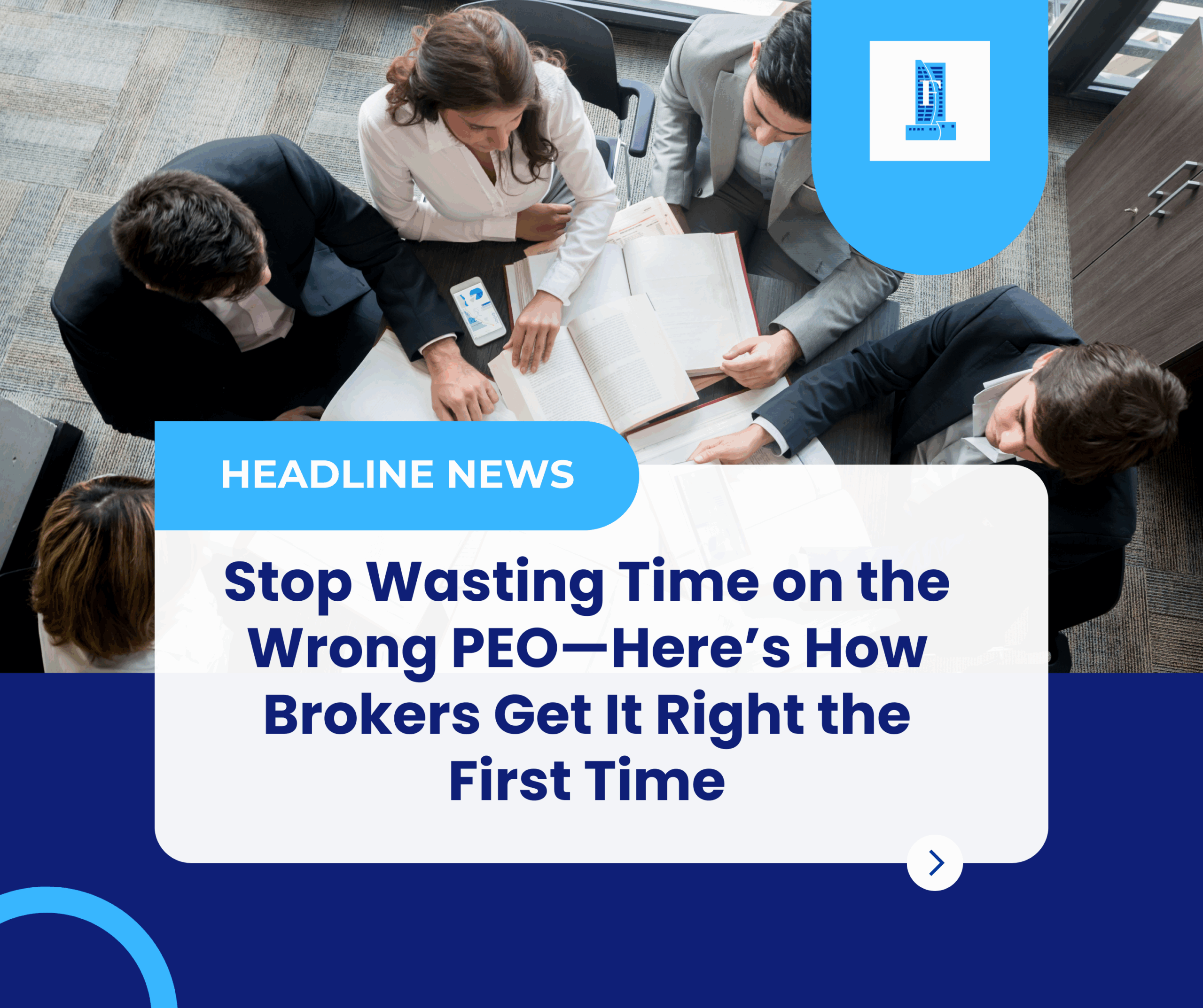Finding the right Professional Employer Organization (PEO) isn’t about who responds first—it’s about who aligns best with your business’s unique goals. In today’s fast-paced HR marketplace, ill-matched partnerships can lead to service breakdowns, regulatory gaps, and wasted resources. This makes the broker’s role as a matchmaker indispensable.
Deep-Dive Business Profiling
A qualified PEO broker begins the process with a comprehensive assessment that goes far beyond the basics: company size, industry, number of employees, and payroll volume. They also evaluate factors such as workforce distribution (onsite, remote, multi-state), growth trajectory, risk tolerance, organizational culture, existing HR systems, and open positions. This multidimensional profiling ensures potential PEOs are evaluated not just on price, but on compatibility and scalability.
Strategic Industry and Service Specialization
PEOs often focus their expertise on particular industries—such as construction, technology, healthcare, or nonprofit organizations—or specialize in areas like compliance, high-risk operations, or global workforce management. A broker identifies providers with proven experience in your sector and prioritizes PEOs that showcase targeted benefits, risk mitigation, and legal expertise. This ensures you’re matched with a partner who understands your industry’s unique challenges.
Prioritizing Platform Compatibility and Accessibility
Today’s HR landscape demands intuitive, digital-first tools for employee onboarding, time tracking, and benefits administration. Brokers evaluate PEOs not only based on product features but also on platform UX, mobile functionality, integration capabilities, and reporting analytics. This ensures your team adopts a PEO with the technology stack that supports your existing systems and drives efficient HR operations.
Risk Assessment and Compliance Fit
Compliance missteps—like misclassifying employees, underpaying taxes, or failing to secure proper workers’ compensation—can have severe consequences. Brokers perform due diligence on each PEO’s compliance program, including their state licensing, insurance coverage, audit frequency, and track record with compliance issues. Armed with that knowledge, you’re placed with a PEO that proactively shields you from regulatory exposure.
Relationship Compatibility and Long-Term Fit
It’s not just about systems—it’s also about people. Brokers consider the cultural alignment between your team and potential PEO service teams. Through reference calls, client testimonials, and historical service records, brokers assess responsiveness, communication styles, and problem-resolution capabilities. Selecting a well-matched provider from day one supports long-term satisfaction and a stronger working relationship.
Conclusion
Matching with the right PEO is a strategic pairing, not a superficial checklist. Brokers use their market knowledge, industry specialization, tech vetting, risk assessment, and culture evaluation to bring forward only the providers that align with your goals. The result is a tailored, scalable PEO partnership that supports growth, enhances HR efficiency, and minimizes risk.
For business leaders who want peace of mind and precision in their PEO selection process, working with a broker isn’t just an option—it’s a strategic imperative.

